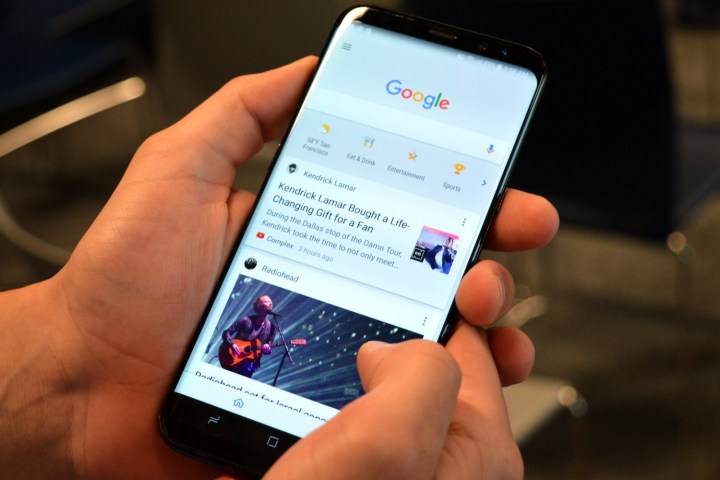
As part of its 20th anniversary, Google unveiled plans to improve Search, starting with its Google Feed. Now known as Discover, the update brings a redesign complete with features to help you find content that aligns with your interests.
The new feature is finally starting to replace the basic Google Search box on mobile devices. So, instead of a simple search box showing up when you head to Google.com, you’ll also be presented with all the features you would find in Google Feed, including news stories and other information Google thinks might interest you. Discover is rolling out to Google.com on both iOS and Android.
With Discover, Google aims to help you uncover content that is not only, timely but that also aligns with your interests. While scrolling through, you will see topic headers that provide an explanation for why you’re seeing a specific card in Discover. Next to the topic name is a Discover icon, which you’ll also start seeing in Search. If there is a topic that interests you, tapping on the icon will bring you to more content along with the ability to tap “Follow” it, which will add it to your feed.

While the new feature sets out on bringing you fresh content, Discover also provides you with evergreen content that is relevant to you even if the article isn’t new. If you’re planning a road trip across the country or taking some time off in Europe, Discover might show you an article with the best restaurants in that area or suggested places to visit.
Google also recently introduced Topic Layer, which analyzes content on the web for a specific topic and develops subtopics around it. Using this new tool, Discover will be able to pinpoint the level of expertise someone has on a specific topic and then provide content around it. For example, if you’re learning to play the piano, Discover might show you content for beginners. If you have been playing the piano for years, you’ll see more advanced content appear.
Customizability is still alive and well even with the new update. Now, you can tap on the control icon in Discover to indicate whether you want to see more or less content on a specific topic. As for news, Google says that it will use the same technology used in its redesigned News app known as Full Coverage, which paints a complete picture of a story from a variety of different perspectives.
Google also announced that it’s beginning to use artificial intelligence to put together AMP stories (an open source library that makes it easy for anyone to create a story on the web) that will surface in Search. The new feature will start with celebrities and athletes, providing facts and important moments form their lives in a visual format that then allows you to tap into articles for more information.
Search will also be incorporating featured videos, depending on what it is you look up. Google uses computer vision to understand the content of a video and then quickly help you find information that’s useful. For example, if you look up Paris, you might see a video for each attraction like the Eiffel Tower or the Louvre. Similar to the way Topic Layer works, featured videos take your understanding of a specific topic and show videos that are related to that subtopic.
Updated on November 20, 2018: Google is now replacing the search page with Discover.
Editors' Recommendations
- The Google Pixel 8a price just leaked. Here’s how much it’ll cost
- The 6 biggest announcements we expect from Google I/O 2024
- This Google Pixel 8a leak just spoiled everything about the phone
- Google Pixel 9: news, rumored price, release date, and more
- Google Messages vs. Samsung Messages: Which app should you use?


